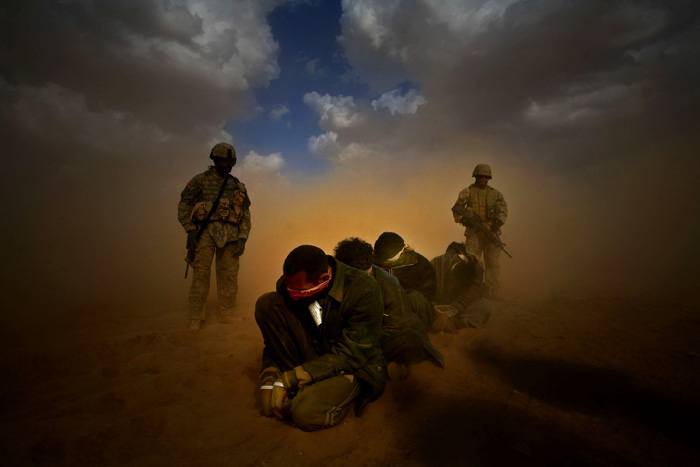Taxi to the Dark Side

An Afghani taxi driver makes the fateful decision one day in 2005 to take his fare into a battlefield where innocent people arrested as potential terrorists. His arrest, incarceration and torture ended in his death when he took his “Taxi to the Dark Side.”
Laura's Review: B+
Robin's Review: B+
Documentary writer-director Alex Gibney takes a subject matter – torture and dehumanization of prisoners by US personnel – that was played to death by the media a couple of years ago following the infamous Abu Ghraib Prison scandal in Iraq but gives it a fresh and thorough treatment. Using the arrest and subsequent death of taxi driver Dilawar as its central focus, Gibney draws an indictment against sanctioned and unsanctioned torture by US forces upon detainees taken captive in the name of the “War on Terror.” Starting with Dilawar’s demise – by homicide according to the cause of death report – the docu expands to the chronicles of abuse at Abu Ghraib and Bagram Prison in Afghanistan. Forced standing, sleep deprivation, forced nudity, threatening attack dogs and water boarding – forcing water down the throat of a torture victim to induce the feeling of drowning – are all tools used by interrogators” in Iran, Iraq and Guantanamo Bay, Cuba. Gibney shifts gears as he takes the tortures and brings forth documented information that the US government officially sanctioned – with former Secretary of Defense Donald Rumsfeld explicitly giving his OK - the human rights abuses by members of our military and CIA. One of the shocking manipulations by the president and his cronies was their introduction of a bill to Congress that would, essentially, pardon the Bush administration from any past, sanctioned use of torture and abuse. Richard Nixon, the filmmaker says, at least hired Gerald Ford to do the pardoning and not doing it himself. ”Taxi to the Dark Side” doesn’t inundate you with statistics but does give some sobering numbers: by 11 September 2006, 83000 have been incarcerated under the guise of stopping terrorism - none of these detainees have had their day in court. Only 7% of those detained at Guantanamo were captured by US personnel while over 90% were taken by Iraquis and Afghans and turned over to the United States. It is estimated that only a small percentage of the incarcerated are actually members of a terrorist group. But, as one of the innocents, British citizen Moazzam Begg, quotes: “If you weren’t a terrorist when you came here [Quantanamo Bay] you sure would be when you leave.” This wealth of information as it comes full circle back to Dilawar’s sad story as the camera turns to his family and friends for their feelings and impressions. The film’s arc is nicely balanced with both intellectual and physical gut-wrenching. This is one of the Oscar noms for Best Documentary and deserves to be on the list.

